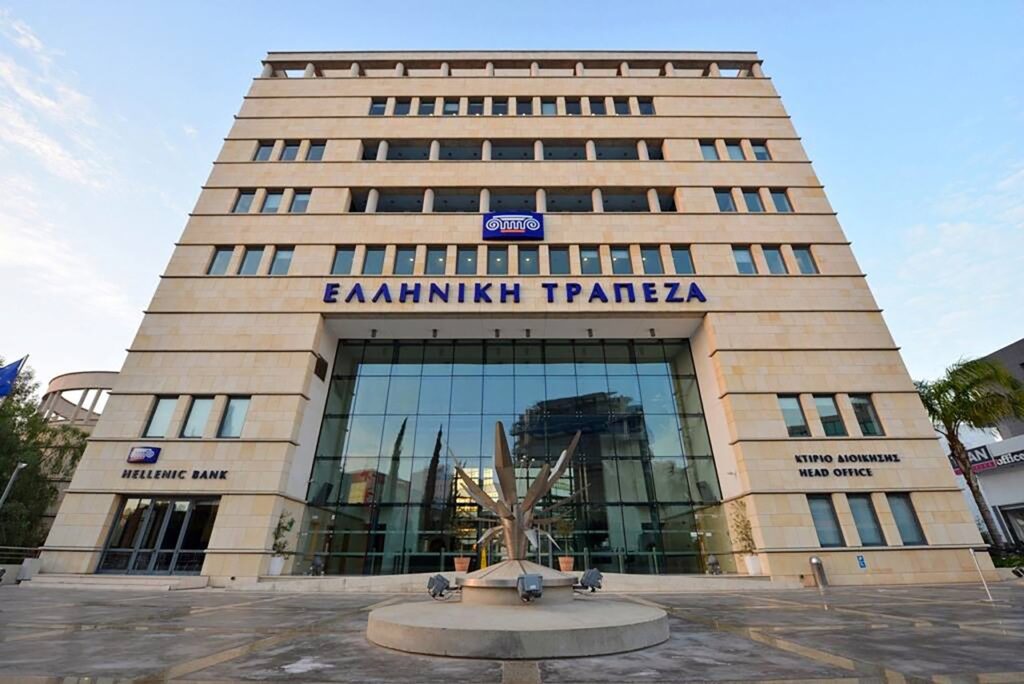‘Standing up to bank employees union will take guts’
Negotiations for the renewal of the collective agreement at Hellenic Bank, which were on hold for seven months, are set to begin this week
After seven months of grandstanding and filibustering the bank employees union Etyk, agreed last Thursday to enter negotiations with Hellenic Bank for the renewal of the collective agreement, calling off the 24-hour warning strike at the bank scheduled for Tuesday.
The executive council of Etyk had announced the holding of the strike last Tuesday, authorising the union’s secretariat, “if it deems it necessary to extend the measures to the rest of the banks.” In its strike call, Etyk cited the ballot in which 95.5 per cent of bank employees’ that voted, backed strike action.
The strike was averted by the intervention of Disy leader Averof Neophytou, who met each side separately and persuaded them to return to the negotiating table. Etyk had demanded that Hellenic withdrew the redundancy notices it had sent to employees and the bank was happy to oblige; Etyk meanwhile “suspended” the strike and agreed to return to negotiations.
The negotiations for the renewal of the collective agreements began last October but were abandoned after two meetings during which Etyk set a host of unrealistic conditions. The Hellenic management deemed there was deadlock and sought the mediation of the labour ministry but Etyk set a condition for attending.
It demanded the harmonisation of the wages of the former Cyprus Cooperative Bank (CCB) workers who had moved to Hellenic in the takeover of the CCB. These workers had received assurances from the CCB that their original wages would be reinstated, but the bank was closed before this happened and Etyk demanded that Hellenic honoured the agreement. Reinstating the wages of the ex-CCB workers became a condition for attending talks, which was nothing more than a pretext to stay away.
“We never said we would not discuss the reinstatement of wages, but for whom and by how much was a matter for discussion that we would look at and agree during the negotiations for the renewal of collective agreements,” said a Hellenic Bank source. It was a pending issue.
Etyk, meanwhile, secured a letter from the labour ministry, saying the bank had a legal obligation to reinstate the wages, and used this for its propaganda against Hellenic accusing it of violating the law and demanding that it was prosecuted. An Etyk official also criticised the labour ministry for not prosecuting the bank, although it was clear the ministry was satisfied with assurances that the matter would be addressed at negotiations.
The general manager of the employers’ and industrialists’ federation Oev, Michalis Antoniou, who has long experience in labour negotiations, told the Cybc, “the labour ministry took a specific position and the bank has made clear its intention to implement the decisions of the labour ministry, once what is owed is specified.”
This would be incorporated in the new collective agreement, said Antoniou, explaining that this was not a clear-cut case. “Outstanding issues are inevitable after the upheaval caused by a bank absorbing another; procedures for assimilation and normalisation take time,” he added.
The real issue for Etyk is that the German CEO of Hellenic Bank, Oliver Gatzke, is prepared to stand up to it, something that it is not accustomed to. Ever since taking over, Gatzke has made it clear that the bank needed to “to become more competitive and reduce its very high cost to income ration.”
In an email to staff, Gatzke explained: “This is not a sudden decision of the Bank, but a supervisory request, as well as a result of our non-investment grade rating deriving from the unsustainable cost to income ratio. Improvements on the income side are limited, due to market environment, leveraged households/companies, expiring Cyprus Government Bond maturities and capital constraints imposed by the supervisors. Therefore, we need to focus on the cost side.”
Gatzke also questioned the formula for compensating staff that opted for the voluntary exit scheme, which was extremely generous. Primarily, based on years of service, there were bank employees who could leave with payoffs of as much as €200,000 which undermined the cost-cutting exercise. There is no law obliging the banks to offer lucrative voluntary exit schemes, but Etyk had made it the general practice. It became the way for banks to lay off staff without the union making a fuss or threatening strikes.
This costly ‘downsizing’ formula has been challenged by Hellenic’s CEO, who would like to see it rationalised. His position, which was included in the email to staff. “The cost management exercise will lead to savings that will positively impact the effects of the restructuring plan in terms of the staff of the Bank and the financial contribution to those who will be leaving the Bank,” he wrote.
Challenging the practices imposed by Etyk, was not acceptable to the union, which has regularly targeted Gatzke in its announcements, referring to him as “the foreigner” or the “German” who was disrupting the banking sector through the “importing of foreign practices.”
As part of this war on him, the union has also claimed he wanted to make 50 per cent of the Hellenic workers redundant, although it difficult to know how it came to this conclusion. The bank announced it wanted to lay off 350 workers by the end of this year which is closer to 10 rather than 50 per cent. It may also object to his plan for gradual introduction of performance pay, rather than the 4 per cent, across the board, annual pay rises imposed by Etyk.
It is difficult for Etyk that has been setting the agenda of labour relations in banking for the last three decades, always getting what it wants, to accept that its dominant role was being challenged. This may explain why it has been refusing to negotiate with Hellenic Bank for seven months. It fears the bank will not bow to its demands.
Evdokimos Xenophontos, who was a top executive at the Bank of Cyprus for many years and also served as Vice President of the board of directors, acknowledged that Etyk, was running the show. “All it needs to cut its power is guts,” he said. Bank boards always gave in to the union because they were under pressure from customers not to allow a strike.
“Customers say they have to work and pressure the banks,” said Xenophontos, “and you may have the rug pulled from under your feet by the board.” When he was at the Bank of Cyprus, Etyk staged a strike at JCC payment systems which lasted two to three weeks, because it wanted the workers to join the union. They had been hired on condition they would not join the union.
In the end, the banks, under pressure from businesses, because credit cards could not be used, gave in. The labour ministry, which always supported the unions, sided with Etyk in the dispute.
Xenophontos reckoned that the banks should let Etyk call a strike just to show it that it cannot always use the strike threat to impose its demands. “The problem is that everyone is terrified of a banking strike,” he said.
For now the threat of a banking strike has subsided, but Etyk has only “suspended” the warning strike at Hellenic, which it could stage if negotiations at the ministry, which start this week, do not go its way.







Click here to change your cookie preferences